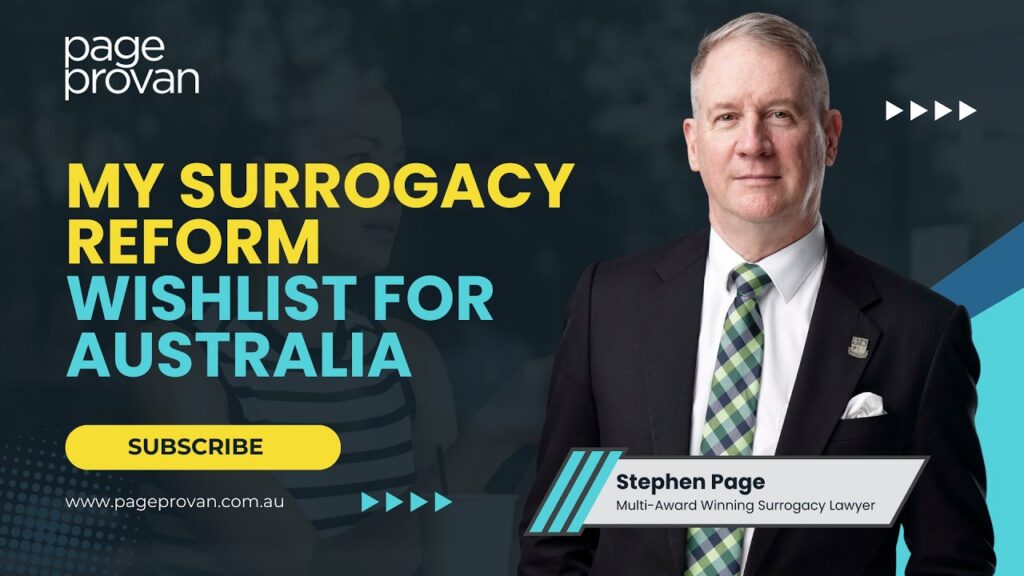Using your late husband’s sperm to become a mum
What I have now seen a number of times is when it is known that the husband is going to die, because he has cancer, and it is the wish of both parties that his sperm is going to be used to enable his widow to become a mum.
Simply tricky stuff.
The how to guide goes like this:
1. Plan early
Leave it too late, and it may be impossible to do. If your husband has cancer, his sperm may not be viable to be used. The sooner his sperm is able to be stored, usually the better, but of course check with an expert fertility doctor. I have had a case where the husband’s sperm was taken when he was under 18. This has its own challenges.
2. If in WA, get the sperm out of WA
Western Australia expressly prohibits – by regulation – the use of sperm in this type of case. It is possible to have a clinic interstate (but check in advance) undertake the treatment and to ship the sperm interstate.Reproductive Technology Council approval is not required. You may have to get a lawyer’s letter to tell the WA clinic that it is lawful to ship without RTC approval. If the husband consents to the transport and storage, all the better.
3. Have clearly expressed directions
Without having written directions, properly witnessed, by the husband consenting to the use, then the sperm may not be able be used in Australia. While it may be possible to export the sperm overseas, the cost goes up considerably.
It is important at this stage, no matter how urgent it may seem, to get good legal advice from a lawyer who knows what they are doing. The clearly expressed, written and witnessed direction should in my view not only be in the will but also in separate directions. If there is some issue about the validity of the will, or some issue about whether the topic can be covered in the will, at least the written directions, written in compliance with legal requirements should be sufficient.
4. After the death, have counselling
A requirement of regulatory approval is that the wife will need to have counselling, preferably from an experienced fertility counsellor, so that complex issues can be discussed appropriately. The counsellor will need to write a comprehensive report for the wife, and any regulatory authorities to use.
5. Get a lawyer’s letter
In order to facilitate regulatory approval, it is helpful to have a letter from a lawyer pointing out for the benefit of the regulatory authority that all steps have been complied with and that it is OK to provide treatment. Obviously a lawyer who has done this type of work before is the ideal. You don’t want to have to pay to educate your lawyer!
6. Get regulatory approval
Before treatment can begin, there needs to be regulatory approval. This is either an ethics committee, or in Victoria both the ethics committee of the clinic plus Patient Review Panel approval. Clinics are risk averse and will want everything set out out for them clearly that there has been full compliance by you with regulatory and ethical issues.
7. Take a deep breath
Typically, approval will occur after the wife has had enough time to grieve and then wishes to proceed with a clear mind. This may be some months. Treatment should not happen before then.
8. Get started!
Good luck! If it doesn’t work, surrogacy may be an option- but it is best to make sure that the paperwork at the beginning is properly prepared so that that option is still available.











